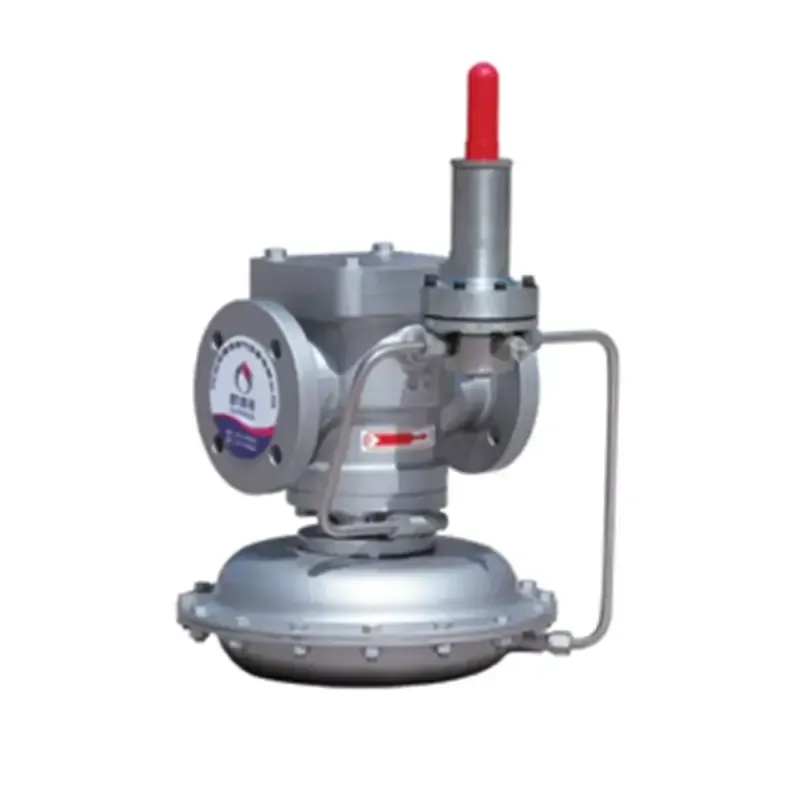
Nov . 24, 2024 17:57
Back to list
Natural Gas Safety Valve Ensuring Secure and Efficient Gas Usage
The Importance of Natural Gas Safety Valves
Natural gas is a key component in energy consumption around the globe. Its applications range from domestic heating and cooking to powering industries and generating electricity. However, with the benefits of natural gas come significant safety concerns, especially regarding leaks and excessive pressure. This is where natural gas safety valves play a crucial role.
Natural gas safety valves, typically referred to as pressure relief valves, are designed to prevent accidents related to gas pressure build-up. Under normal circumstances, natural gas is transported and stored under high pressure. If this pressure exceeds safe levels due to thermal expansion, blockages, or equipment malfunctions, it can lead to catastrophic failures such as explosions, fires, or equipment damage. The safety valves are engineered to release excess pressure automatically, ensuring that the system remains within safe operating limits.
.
Installation and maintenance of safety valves are paramount for effective operation. It is essential to ensure that these valves are correctly calibrated to the specific pressure requirements of a system. Regular inspections and tests should be conducted to identify any signs of wear or malfunction. Neglecting maintenance can compromise their effectiveness and lead to dangerous situations.
صمام أمان الغاز الطبيعي

Moreover, integrating state-of-the-art technology into safety valve design has led to advances that enhance their reliability and response times. For example, many modern safety valves are equipped with monitoring systems that provide real-time data on pressure conditions. These technologies can offer alerts and notifications, allowing operators to take immediate actions if a potential hazard arises.
Training is another critical aspect in ensuring natural gas safety. Personnel working with gas systems should be adequately trained to understand the functioning and importance of safety valves. They should also be familiar with emergency procedures in case of leaks or pressure fluctuations. Educational programs can empower workers to recognize potential risks and take appropriate preventive measures.
In addition to the technical considerations, public awareness and safety campaigns are vital to promote the safe use of natural gas. Governments and utility companies often collaborate to educate communities about the risks associated with natural gas and the importance of having functional safety valves. These initiatives help build a culture of safety, encouraging individuals to report leaks or irregularities promptly.
Natural gas safety valves are essential features in gas handling systems, ensuring that safety is prioritized. By preventing dangerous pressure build-up, these valves protect infrastructure, lives, and the environment. Through proper installation, regular maintenance, and training, we can ensure that these critical safety devices perform their functions effectively.
In conclusion, while natural gas serves as a valuable energy source, its inherent risks cannot be overlooked. Safety valves are a frontline defense against potential disasters, making their role in gas safety invaluable. As we continue to rely on natural gas for various applications, the importance of robust safety measures, including well-functioning safety valves, remains paramount in protecting people and property.
Latest news
-
Safety Valve Spring-Loaded Design Overpressure ProtectionNewsJul.25,2025
-
Precision Voltage Regulator AC5 Accuracy Grade PerformanceNewsJul.25,2025
-
Natural Gas Pressure Regulating Skid Industrial Pipeline ApplicationsNewsJul.25,2025
-
Natural Gas Filter Stainless Steel Mesh Element DesignNewsJul.25,2025
-
Gas Pressure Regulator Valve Direct-Acting Spring-Loaded DesignNewsJul.25,2025
-
Decompression Equipment Multi-Stage Heat Exchange System DesignNewsJul.25,2025

